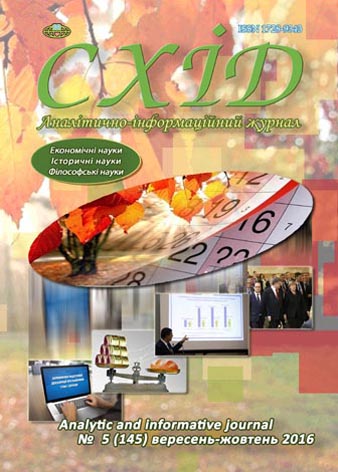Modern approaches of the understanding of ad-arguments and criteria for their eligibility
DOI:
https://doi.org/10.21847/1728-9343.2016.5(145).83849Keywords:
argument appellant (ad-argument), communicative nature of truth, logical consequence, proof, argumentation, substantiationAbstract
In this article the term "appellant argument" (ad-argument) is considered in terms of current approaches (Pragma-dialectic, informal logic, formal dialectic) on the study of the theory of argumentation. Considering the grounds on which such arguments were recognized as incorrect in argumentation for a long time. The informal nature of such arguments is the main ground for understanding them as a way of sophistic argument. In addition, it is established that critics of such arguments is possible not only by the form but also by the content. A review of the position of the subjective nature of such arguments has been performed and it has been stated that by the way of understanding the truth in terms of its communicative nature, the problem is solved by matching the arguments of the thesis based on the consent of the participants. The concept of logical consequence and the concepts of the consequence in the argumentation are being distinguished. Based on this distinction it is concluded that in contrast to the logical consequence in logic, that provides a form of communication between base and conclusions, the consequence in the argumentation is closely associated with the concept of "substantiation".
The acceptability of ad-arguments is determined to be possible in case of the relationship between the thesis of a dialogue and a subject area, based on such arguments that does not belong to the subject area of the dialogue.
A method of the critical issues and method of universalization of ad-arguments as a method for the verification of the relevance of such arguments are proposed.
Downloads
References
Aristotel (1998), Rhetoric, Ethics. Politic. Categories, Literature, Minsk, 739-1012 (rus).
Bredemeier, K. (2005), Black rhetoric: The power and magic of words [translate], Alpin Bussines Books, Moscow, 224 p. (rus).
Van Eemeren, F.H. & Grootendorst, R. (1992), Relevance reviewed: The case of argumentum ad hominem, Argumentation, 6, 141-149. doi: 10.1007/BF00154322
Ivin, A.A. (2015), The philosophical study of science, «Prospectus» Publishing House, Moscow, 603 p. (rus).
Migunov, A.I. (2007) Semantics of argumentative speech act, Thought: Argumentation: digest of articles, Saint-Petersburg, 6, 35-47 (rus).
Lisaniuk, E. N. (2008), Formal and pragmatic analysis procedures appealing arguments, Rossiyskiy yezhegodnik teorii prava [Russian yearbook theory of low], Saint-Petersburg, 1, pp. 498-509. (rus).
Walton, D. (2002), Argument ad hominem, Moscow, 350 p.
Suprun, N.T. (2014), understanding of the idea «proof» in the logical concept of Karpov, Gileya: scientific journal, 88, 218-221 (ukr).
Shcherbyna, O. Y. (2013), Logic and legal argumentation, Publishing and printing center «Kiev University», Kiev, 303 p. (ukr).
Walton, D. (2013), Methods of Argumentation, Cambridge University Press, doi: 10.1017/CBO9781139600187.
Walton, Douglas (2005), Fundamentals of Critical Argumentation, Cambridge University Press, Cambridge, 343 p. doi: 10.1017/CBO9780511807039
Downloads
Published
How to Cite
Issue
Section
License
Copyright (c) 2016 Nadiia Savchenko

This work is licensed under a Creative Commons Attribution-NonCommercial-NoDerivatives 4.0 International License.
1. Authors bear responsibility for the accuracy of facts, quotations, numbers and names used.
2. Manuscripts are not sent back.
3. The publisher does not always agree with the authors' opinion.
4. The authors reserve the right to authorship of the work and pass the first publication right of this work to the journal under the terms of a Creative Commons Attribution-NonCommercial-NoDerivatives 4.0 International License. This license allows others to distribute (copy) the published work for non-commercial purposes, provided there is mandatory attribution to its authors and a link to the first publication in our journal.
5. The authors have the right to conclude separate supplement agreements that relate to non-exclusive work distribution in the form in which it has been published by the journal (for example, to upload the work to the online storage of the journal or publish it as part of a monograph), provided that the reference to the first publication of the work in this journal is included.

